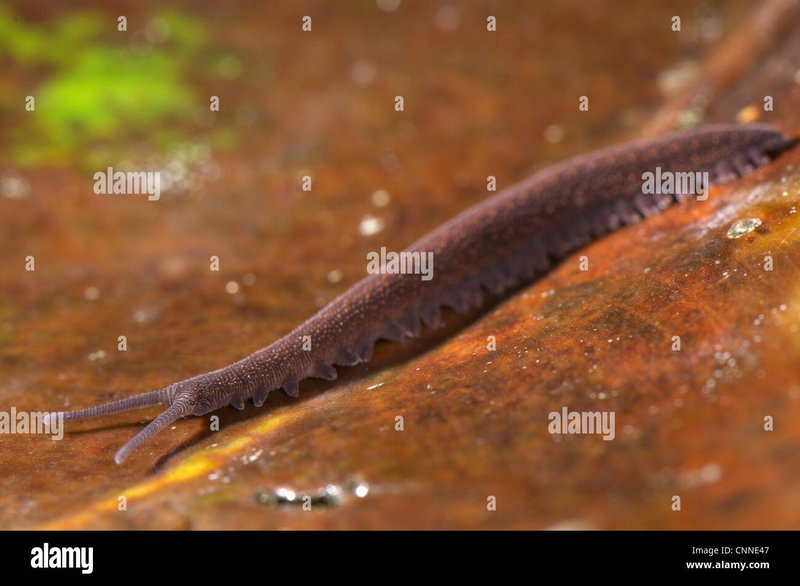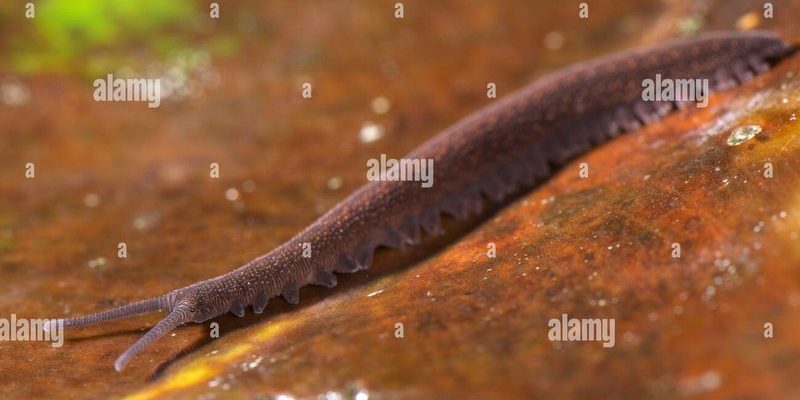
Imagine a velvet worm as the unsung hero of the forest floor—it’s not flashy like a bird or quick like a squirrel, but it’s doing some vital work behind the scenes. As they munch on decaying leaves and other organic matter, these fascinating creatures facilitate decomposition, returning nutrients to the soil and paving the way for new growth. So, let’s dive into how velvet worms contribute to this essential process and why it matters.
What Are Velvet Worms?
Velvet worms, or *Onychophora*, are fascinating, soft-bodied creatures that thrive in moist, leaf-littered environments. They may look like a mix between a caterpillar and a slug, with their long, segmented bodies and unjointed legs. Although these little guys can be a bit shy, they’re definitely not boring!
You’ll mainly find velvet worms in tropical and subtropical regions, hidden under the leaf litter or in decaying wood. They play a unique role in their habitat and have some interesting features, like the ability to shoot a sticky slime at their prey. This slime helps them catch small insects to eat, but it also aids in breaking down organic material, making decomposition easier.
You might be wondering why these creatures are important. Their contributions to the ecosystem go beyond their good looks! Velvet worms are vital when it comes to the decomposition of organic matter, ensuring that nutrients are cycled back into the environment.
The Role of Leaf Litter in Ecosystems
Leaf litter is the layer of dead leaves, twigs, and organic debris that blankets the forest floor. It’s like a cozy blanket for many organisms and serves crucial purposes in the ecosystem. First and foremost, it provides habitat and food for countless creatures, from insects to larger mammals.
Besides being a home for many, leaf litter is important for soil formation. As it decomposes, it releases nutrients that plants need to thrive. Think of it as nature’s compost pile! However, without the right decomposers, this process could slow down considerably. That’s where velvet worms come in.
These little heroes help break down leaf litter, making it easier for other organisms to continue the decomposition process. They’re like the first responders in the recycling team, ensuring that the cycle of life keeps moving and that nutrients return to the soil where they belong.
How Velvet Worms Decompose Leaf Litter
Now, let’s get into the nitty-gritty of how velvet worms contribute to leaf litter decomposition. These creatures have specialized jaws that allow them to consume decaying plant material, including leaves. When they munch away, they break this material into smaller pieces, making it easier for bacteria and fungi to do their work.
Once the velvet worms take a bite, they’re not just enjoying a meal. Their feeding habits aerate the leaf litter, improving the conditions for microbial activity. Think of it like stirring up a pot of soup—everything mixes together better, allowing flavors (or in this case, nutrients) to spread throughout the mixture.
It’s pretty amazing how a small creature can make such a big difference! By breaking down tough cellulose and other complex compounds found in plant material, velvet worms help speed up the decomposition process. This is critical not just for the worms, but for the entire ecosystem.
The Impact of Velvet Worms on Soil Quality
So, why should we care about velvet worms and their role in leaf litter decomposition? The answer lies in soil quality. Healthy soil is essential for plant growth, and velvet worms play a pivotal role in maintaining that health.
As they break down organic matter, velvet worms contribute to the formation of humus, which is rich in nutrients. This nutrient-rich layer holds moisture and supports the growth of plants. Without adequate decomposition, soil can become compacted and nutrient-deficient, leading to poor plant health and diminished biodiversity.
You might be thinking, “Okay, but how does this affect me?” Well, healthy ecosystems contribute to a stable climate, provide food, and support clean water supplies. In short, when velvet worms do their job, they help create a thriving environment for all of us, including the food we eat and the air we breathe.
How Human Activity Threatens Velvet Worms
Unfortunately, velvet worms face threats due to human activity. Deforestation and habitat destruction can severely impact their populations. As we clear forests for agriculture or urban development, we’re not just losing trees; we’re also disrupting the delicate balance of ecosystems.
When habitats are compromised, it limits the food sources for velvet worms and other decomposers. This decrease in decomposing organisms can slow down the leaf litter decomposition process, ultimately affecting soil quality and plant health. It’s a ripple effect that affects everything in the ecosystem.
By understanding the importance of velvet worms, we can take steps to protect their habitats. Simple actions like supporting sustainable forestry practices or planting native species can make a difference for these little creatures and the ecosystems they help sustain.
How to Support Velvet Worm Populations
If you’re passionate about helping velvet worms and the ecosystems they support, there are several things you can do. Here are some easy ways to make a positive impact:
- Preserve Natural Habitats: Support efforts to protect forests and natural habitats. Every bit of untouched land helps.
- Participate in Conservation Efforts: Join local conservation groups or initiatives that focus on forest health and biodiversity.
- Create Wildlife-Friendly Spaces: If you have a garden, consider planting native plants that support a healthy ecosystem.
- Educate Others: Share what you learn about velvet worms and their roles in decomposition with friends and family. Awareness can lead to action!
Final Thoughts
Velvet worms may not be the stars of the animal kingdom, but their role in leaf litter decomposition is nothing short of essential. By breaking down organic matter, they help maintain the health of forests and contribute to the cycle of life. In understanding their importance, we can appreciate the intricate web of life that connects us all.
So, next time you stroll through a forest and see leaves scattered on the ground, remember the little velvet worms hard at work beneath the surface. Their slimy, squishy contributions are making the world a greener, healthier place—one leaf at a time.

